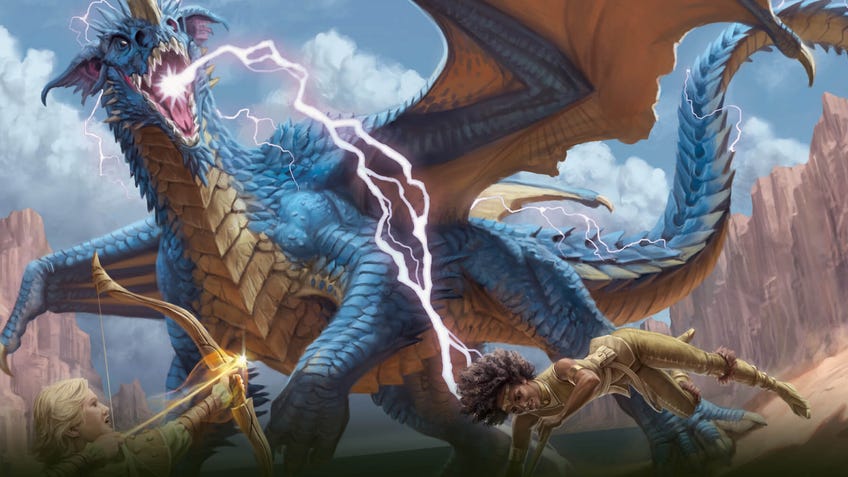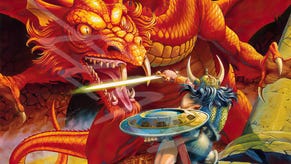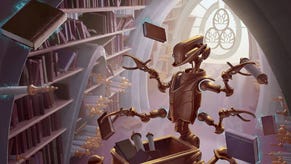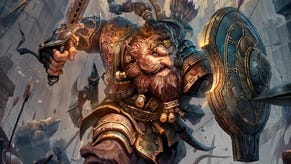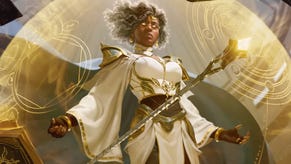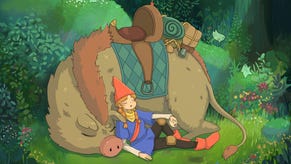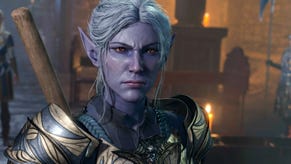OneD&D’s open gaming licence will introduce royalties for biggest creators, prevent third-party NFTs
If you make more than $750,000 a year selling D&D creations, Wizards of the Coast wants a piece of that pie.
Dungeons & Dragons creators attempted to clarify the future of the popular tabletop RPG by explaining how OneD&D will change the way independent creators make and sell D&D-related products.
A December 21st blog post on D&DBeyond says the company and designers working on the next iteration, codenamed OneD&D, have heard the discussions concerning the Open Gaming Licence (OGL) and accompanying System Reference Document (SRD). When combined, the pair form the legal framework and specific rules that allows third-party adventures, supplements and other tabletop content to be created and sold on platforms such as DrivethruRPG and Roll20 (the DMs Guild is a unique exception). Publisher Wizards of the Coast plans to keep the OGL around, though version 1.1 will better fit the current reality of Dungeons & Dragons as a multimedia brand that extends beyond the tabletop, as well as addressing just how financially successful a select few third-party companies have become.
“The OGL needs an update to ensure that it keeps doing what it was intended to do—allow the D&D community’s independent creators to build and play and grow the game we all love—without allowing things like third-parties to mint D&D NFTs and large businesses to exploit our intellectual property,” the blog post reads.
All existing creations meant to be used with D&D 5E will remain compatible with OneD&D and whatever OGL drops alongside it. Wizards explicitly stated that creators will not need to rewrite or republish their old material to fit the new model. Creators should also continue to refer to the existing SRD, as its replacement is being developed alongside OneD&D via ongoing public playtesting.
OGL version 1.1 will clarify that it is only meant to cover tabletop material - adventures, supplements, sourcebooks, etc. - that are printed or published as electronic documents, such as epubs or PDFs. Video games (like the upcoming Bauldur's Gate 3), merchandise, books and films won’t be covered, which makes sense given Wizards and parent company Hasbro are hard at work monetising D&D along those vectors and beyond. Upcoming film Honor Among Thieves represents the beginning of D&D’s brand expansion over the next five years.

The blog post states “very little” will change for those creators who publish free material, but commercial creations will be subject to a new royalty system. Anyone selling their work will need to agree to the new licence, report “OGL-related revenue” annually if you make more than $50,000, and publish a specific creator badge on their products, likely similar to programs such as the Mörk Borg third-party agreement.
Actual royalties won’t kick in until 2024 and only when a creator or business’ revenue cracks the $750,000 ceiling. Wizards claims less than 20 entities will be affected, but you can bet Critical Role's fast expanding media empire is among them, along with longtime D&D publisher Kobold Press. The latter relies heavily on freelance writers and illustrators, and it’s unclear how heavy the royalties will be and whether it will affect customer prices or freelance pay. Dicebreaker has reached out for more information.
This vision of an updated OGL paves a path for Wizards of the Coast to muscle in on ultra-successful crowdfunding projects without crushing existing communities, which the blog post says are “a critical part of the D&D experience”. It also said existing virtual tabletop agreements will not be affected by whatever shape the OGL takes, even though the company has announced their own version to launch close to OneD&D’s release in 2024.
